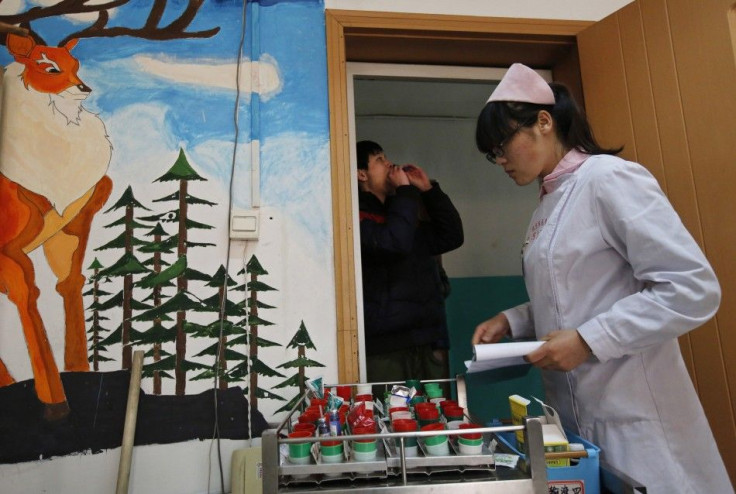Woman's Strange Psychotic Reaction To 'Spice' Reveal It Is More Dangerous Than Thought to Be - Research
Synthetic Cannabis Causes Visual Hallucinations

Spice, a name for synthetic cannabis is extremely dangerous for a person's health. In a recent case, the drug impaired a teenager's movement and thinking ability a condition called catatonia. The 19-year-old Spanish woman, after smoking spice regularly for a year, experienced "catatonic psychosis," according to the report of her case.
She received treatment at a clinic in Valencia in May 2014, and after she discontinued the drug, she fully recovered by June 2013. The woman's case threw light on the serious health consequences that previously thought by researchers.
The case report was published in the June issue of the journal Psychiatry: Interpersonal and Biological Processe. Dr Gonzalo Haro, author of the study and a professor of medicine at the CEU Cardenal Herrera University in Valencia, said that spice also had a more powerful effect on cannabinoid receptors in the brain than natural cannabis does.
Cannabinoid receptors can be activated not only by substances produced in the body but also by drugs such as natural or synthetic cannabis that are involved in a number of physiological processes such as appetite, pain sensation, mood and memory. Researchers said that the patient started smoking spice in April 2011 which she eventually substituted for marijuana, she reported that spice caused her to feel like a zombie.
In November 2011, the woman described feelings of being watched while eating and began talking to herself. She began looking messy and her personal health deteriorated said researchers.
"She felt that she wasn't the girl on the other side," as if she was in a dream when she looked at the mirror, said Haro. She lost touch with reality and began observing the world as a third person, completely detached. Researchers said she also had visual hallucinations, which included seeing "little angels" in the bathroom.
Haro also said that the woman's movements were also impaired by the psychosis - her arms did not move in coordination with her legs when she walked. She stood bent like she had a hunch resembling that of a praying mantis, and her neck, head and arms all became rigid.
"The doctors at the clinic treated her with medications that are used to treat depression, anxiety and Parkinson's disease. However, it was the woman's cessation of spice use that probably played a more important role in her eventual recovery than the medications she took," Haro said.
The doctors wrote in their report that the process was tough for the woman. With treatment her condition drastically improved but the stiff, spraying-mantis position persisted for a while after she stopped treatment in September 2012.
Haro stressed that people should be aware of the serious consequences of using spice, which included seizures, heart palpitation and kidney problems.
"These drugs are unregulated," said Dr Joanna Cohen, a pediatric emergency physician at the Children's National Medical Center, told Live Science in a March 2012 interview. "Symptoms can be unpredictable because the drug is mixed with other types of chemicals and substances."




















